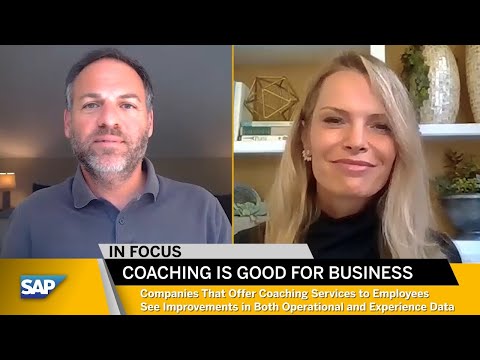It’s 2020 and we’re all feeling it: Schools struggle to re-open, governments struggle to contain the novel coronavirus, and most of us struggle to break out of what the internet is calling the “COVID funk,” a feeling of being constantly overwhelmed that ends up impacting our ability to focus and be productive.
While there is no clear answer as to when the pandemic will subside, there are strategies to manage the mental distress brought on by it and overcome that productivity wall. Coaching is one of them, says Kristen Reynolds, the global ambassador leader of SAP’s coaching program.

“Coaching is about self-reflection and enabling people to find the resources they need within themselves so they can make the transformation they’re looking for in their lives,” Reynolds says. “But as opposed to therapy or counseling, coaching doesn’t focus on the past. The emphasis is on the future, which can be extremely powerful considering the times we’re living in.”
Another difference is that coaching doesn’t prescribe. “It’s a totally advice-free zone. The goal is to ask thought-provoking questions that help the client to tap into their own inner resources and the answers within themselves,” she says.
And although coaching is still a relatively young field, the evidence is mounting that it may spur lifestyle and professional changes – and companies are paying attention to it. SAP started a coaching program 15 years ago and now offers the service to its more than 100,000 employees worldwide as part of a broader strategy to prepare people for the future of work, increase employee engagement, and foster cross-organizational agility.
“Each coach has specific areas of expertise, which are called their ‘superpowers.’ They may focus on conflict resolution, career development, or work-life balance, for instance,” Reynolds explains. “Coaches also help employees have more self-awareness, embrace diversity, and work better in virtual teams.”
It seems to pay off. Internal audits conducted by SAP show that employees with coaches are twice as likely to write up their business goals and 32 percent more likely to achieve them. And in a recent survey, 97 percent of those coached said they could directly apply what they learned in coaching sessions to their world today.
“It’s really key to have both operational as well as experiential data to support a solid coaching program. Balance out productivity indexes with more intangible results, like how a client feels after a coaching session and if they have more positive emotions, thinking, and attitude,” says Reynolds. “SAP’s purpose is to help the world run better and improve people’s lives, and this is one way we’re achieving that vision. Improving the lives of our employees, which, in turn, pours over into our customers, partners, and ultimately the world.”
Listen to the full interview with Kristen Reynolds, available on Anchor and Spotify.



